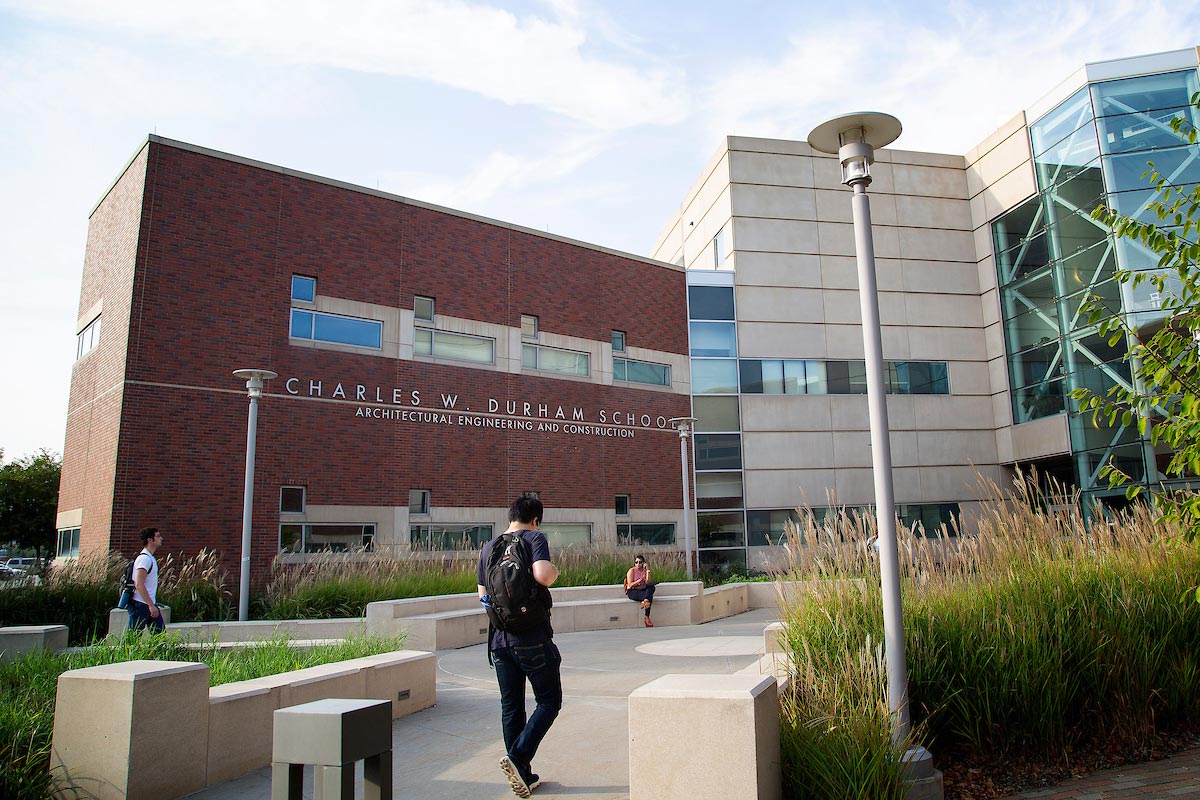Four IS&T Faculty Receive Weitz Innovation and Excellence Fund Awards
Matt Hale, Ph.D.; Mahadevan Subramaniam, Ph.D.; Xin Zhong, Ph.D.; and Christine Toh, Ph.D.; all received funding. This is made possible by the generous support of the Weitz Innovation and Excellence Fund.
- published: 2024/12/13
- contact: UNO College of Information Science & Technology
- search keywords:
- IS&T
- Weitz Innovation and Excellence Fund

Scaling and UP-skilling the Nebraska Cyber Workforce through the NebraskaCYBER MATRIX: Machine Learning, Artificial Intelligence, and Threat Response Initiative for Cybersecurity Excellence
PI: Matt Hale, Ph.D.
Nebraska CYBER MATRIX is an initiative to address Nebraska's growing cybersecurity workforce shortage. The project will create a cutting-edge AI-enabled Security Operations Center (SOC) at the University of Nebraska Omaha (UNO). The SOC will provide a “live fire” environment for cybersecurity professionals to engage in attack/defend exercises while offering real-time cyber threat monitoring and response services to local businesses, government agencies, and educational institutions.
NebraskaCYBER MATRIX’s boot camp is a core initiative designed to provide novice learners with essential cybersecurity skills. The boot camp will use nano modules—short, focused training units—powered by AI-driven tools to ensure participants gain the competencies required for more advanced training within the SOC. This boot camp will provide a scalable, flexible learning model, preparing individuals from diverse backgrounds to enter the cybersecurity workforce.
In the long term, NebraskaCYBER MATRIX will position UNO as a national leader in cybersecurity education, helping close the industry's skills gap. Through strategic partnerships, hands-on training, and mentorship, the initiative will build a pipeline of skilled professionals and help strengthen the cybersecurity infrastructure of Nebraska and beyond.
AI-CCORE: Advancing AI Education, Innovation, and Research
PI: Mahadevan Subramaniam, Ph.D.
The University of Nebraska at Omaha (UNO) launched AI-CCORE (AI Center for Collaborative Outreach, Research, and Education) with a grant from the Weitz Innovation and Excellence Fund. This initiative builds on UNO’s existing AI strengths, including the Bachelor of Science in Artificial Intelligence (BSAI) program, the AI Learning Lab, and partnerships like OpenAI, positioning UNO as a leader in AI education, research, and community engagement.
AI-CCORE focuses on three key areas: Education Workforce Development (EWD), Innovation Enterprise (IE), and Convergent Research (CR). It supports student success through transdisciplinary internships and professional training, empowers businesses with AI solutions and micro-credentials, and engages the community through collaborations like Nebraska’s first AI exhibits at the Kiewit Luminarium.
By fostering convergent research with diverse disciplines, AI-CCORE enhances UNO’s research and prepares a future AI-proficient workforce. This initiative establishes UNO as a central hub for responsible and equitable AI innovation, driving socio-economic progress in Nebraska and the Midwest.
AI CodeLab System: Prototype Development And Pilot Study For Cross-College AI Programming Education At UNO
PI: Xin Zhong, Ph.D.
The AI CodeLab project aims to develop and pilot a functional prototype of an AI programming system across four UNO colleges—IS&T, CAS, CBA, and CPACS. By offering hands-on AI programming experiences, the project seeks to enhance student engagement and AI learning across disciplines.
Aligned with UNO’s Core Pillars 1 and 4, AI CodeLab promotes an inclusive and innovative AI curriculum while preparing a skilled workforce with real-world AI experiences. This initiative fosters interdisciplinary collaboration, strengthens UNO’s leadership in AI education, and paves the way for future partnerships and funding opportunities, contributing to long-term economic growth.
Destination Omaha: A Spatial Immersive Experience
Co-PI: Christine Toh, Ph.D.
Destination Omaha aims to highlight Omaha’s rich cultural heritage by blending humanities research with technology. The project creates an immersive experience where users navigate historical neighborhoods, uncover cultural artifacts, and interact with characters representing diverse individuals who shaped the city’s history.
This initiative bridges local tech professionals with UNO and high school students to develop innovative products in three key areas: accessible interactive computing, generative AI for community storytelling, and extended reality experiences. Drawing from the Omaha Spatial Justice Project, the modular design supports growth and adaptation while fostering strong community-academic-industry partnerships.
Aligned with UNO’s strategic priorities, Destination Omaha enhances innovative education, workforce development, and community engagement, connecting Omaha’s past to its future and enriching the lives of its residents.